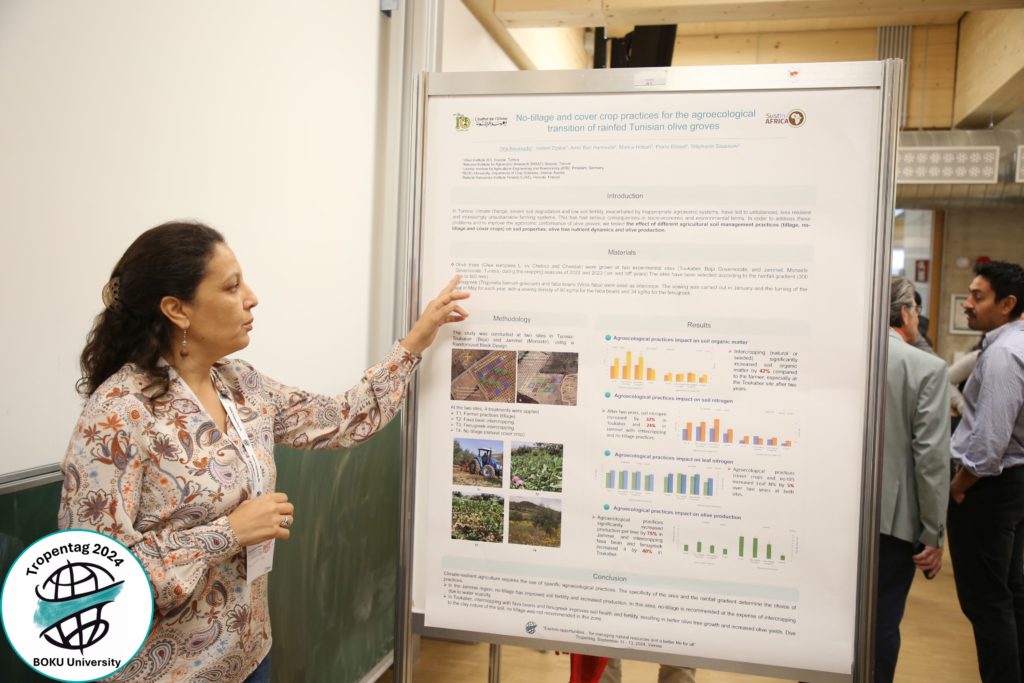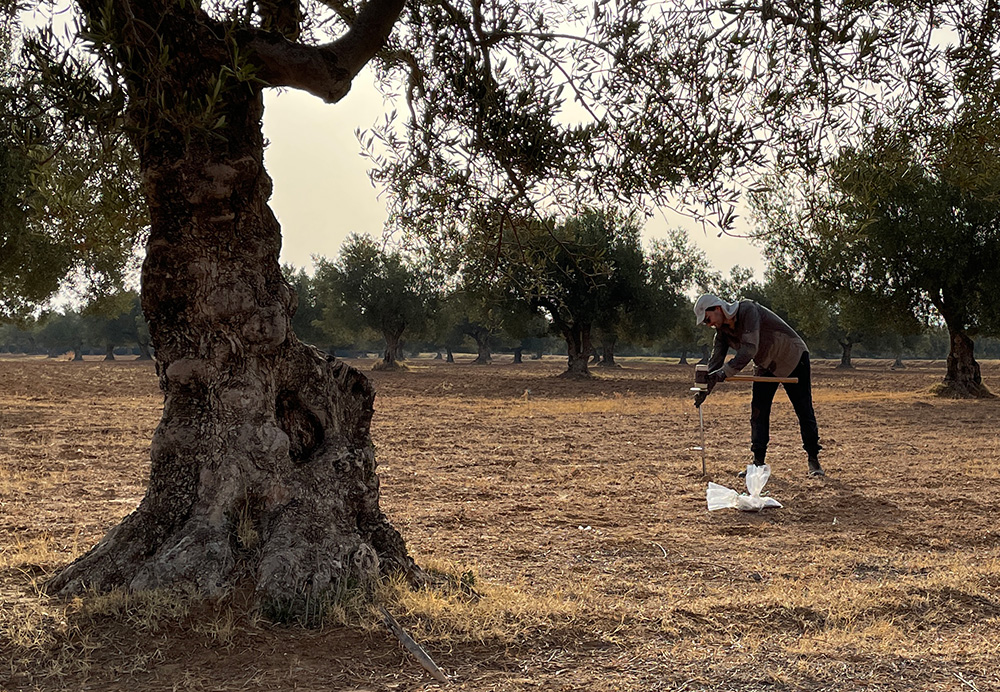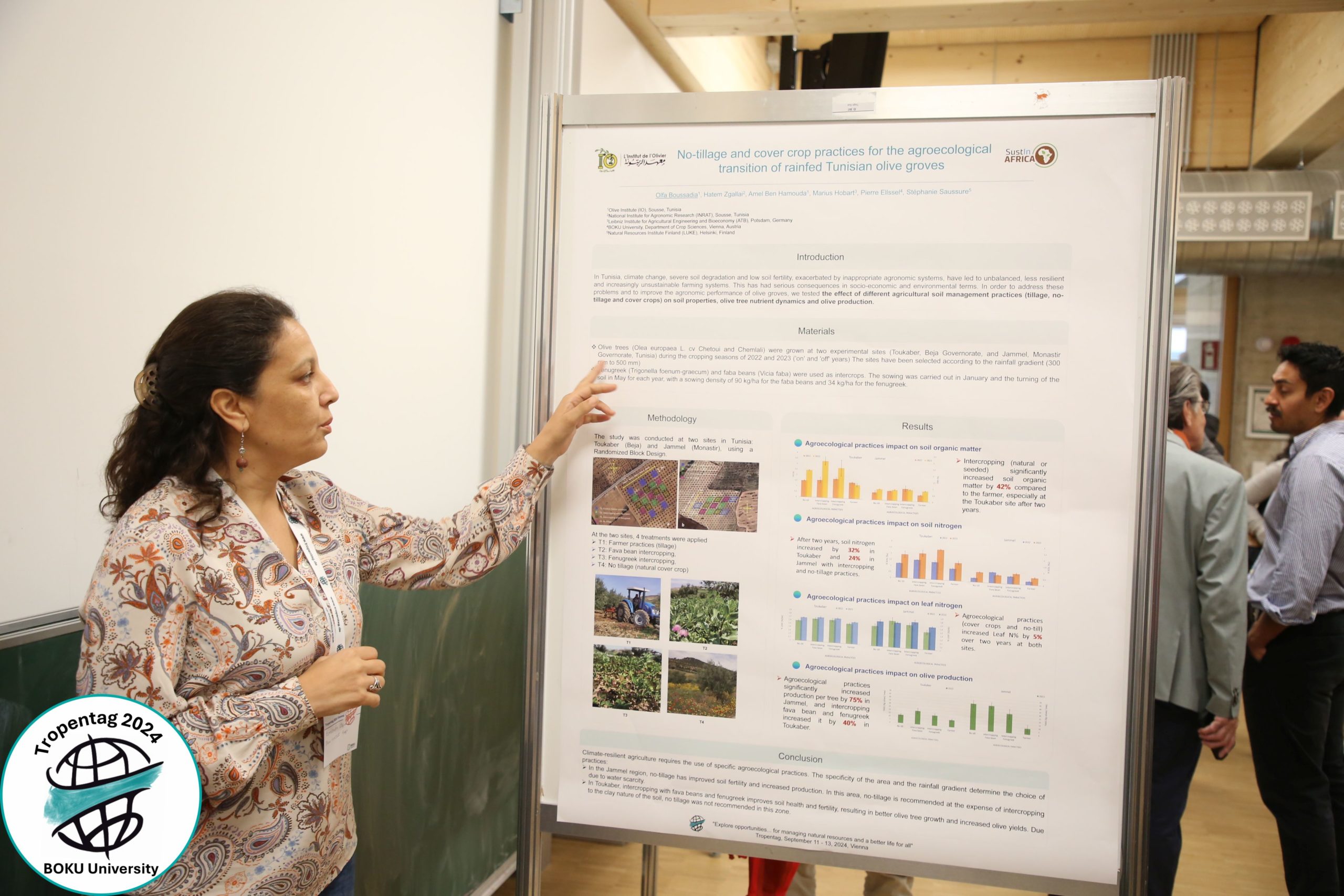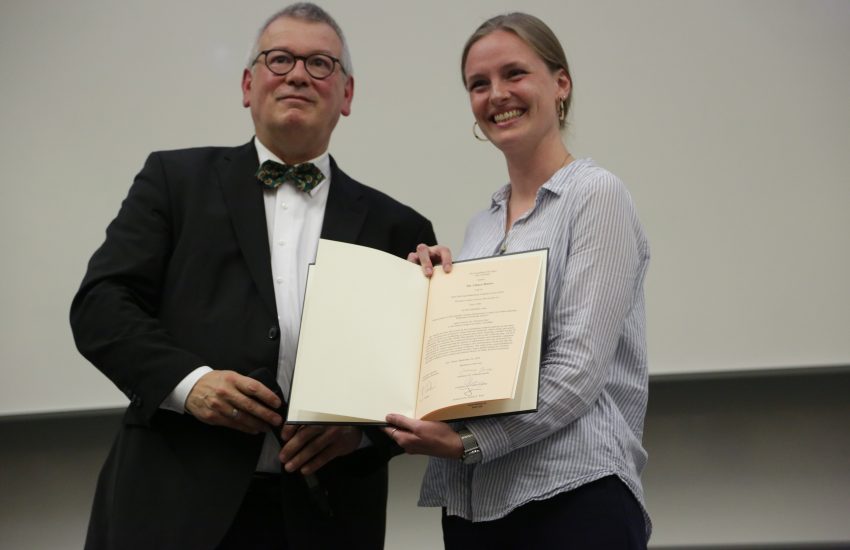The Future of Tunisian Olive Groves: Challenges and Opportunities in Times of Climate Change
Tunisia, also known as the land of the olive tree, faces environmental crises such as soil degradation, biodiversity loss and climate change. Unsustainable farming practices have exacerbated these issues, pointing to critical need for new practices. Agroecology offers promising pathways for olive growers to create more resilient agricultural systems. By incorporating ecological principles, agroecology can help restore soil health, enhance biodiversity, and mitigate the effects of climate change in olive groves.
Olfa Boussadia from the Tunisian Olive Institute (OI) shared her research entitled “No-tillage and cover crop practices for the agroecological transition of rainfed Tunisian olive groves“. In the study, olive trees were grown at two experimental sites, namely Toukaber and Jammel, to which four different treatments were applied: tillage, no tillage (natural cover crop), fava bean intercropping, and fenugreek intercropping. No tillage is an agricultural strategy for growing crops with minimal soil disturbance, whereas leguminous crops “fix” nitrogen and naturally enrich the soil. The experiment demonstrated that no-tillage in Jammel improved soil fertility and achieved higher yields. Due to water scarcity in the region, no-tillage was preferred over intercropping. In Toukaber, however, intercropping with fava beans and fenugreek improved soil health and fertility, leading to improved olive tree growth and increased olive yields. Because of the clay soils of the area, no-tillage was not recommended.

Besides the ecological components of agroecology, its potential role in business models was also present in the poster sessions of the Tropentag conference. Rihab Mejri from the National Institute of Agronomic Research (INRAT) in Tunisia researched “Empowering smallholder olive growers in northwest Tunisia through an agroecological business model” in the region of Ellés. The current business models of olive growers include agroecological principles of co-creation of knowledge, social value and
diets, fairness, connectivity, land and natural resource governance, and participation. Through workshops with stakeholders involved in the olive food chain and the Business Agroecology Criteria Tool
(B-ACT), additional strategies were identified for a transition towards an agroecological business model such as using olive oil wastewater as fertilizer, diversifying olive groves by integrating fruit trees and (layered) fodder crops, and creating an agricultural association for olive growers to enable knowledge exchange.

The case studies from Tunisia illustrate the diverse ways agroecological principles can be applied to olive groves, highlighting their potential for sustainable farming.
Author: Lisa Vissers



